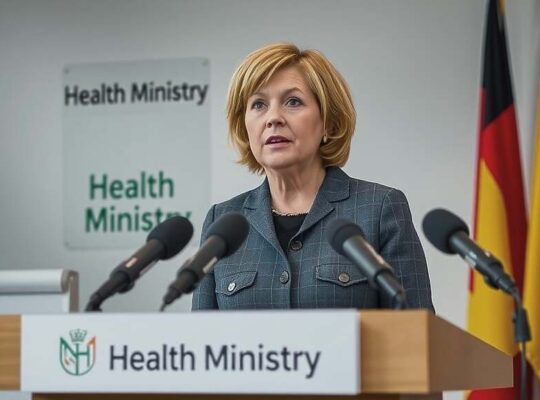A recent survey commissioned by the AOK Federal Association reveals a significant knowledge gap regarding the upcoming mandatory implementation of the electronic patient record (ePA) system in Germany. The Forsa Institute’s poll, published in several German newspapers, indicates that the vast majority of insured individuals who have visited a doctor this year have yet to encounter the ePA system during their appointments.
The survey found that 84% of individuals who saw a doctor in 12 months had not discussed the ePA with their physician or practice staff. Only 9% had been approached about the system by medical professionals and 6% initiated the conversation themselves.
Despite this lack of familiarity, there’s considerable interest in the ePA among those covered by statutory health insurance. A substantial 88% expressed a desire to access their health data, such as doctor’s letters and lab results, through the digital record.
Interest in actively contributing to their electronic patient record by storing documents and sharing them with their doctors is slightly lower, with 63% expressing agreement or leaning toward agreement, while 18% stated opposition.
The survey, conducted between August 28th and September 18th, 2025, polled 8,509 individuals aged 18 and over insured through the statutory health system. The ePA is designed to serve as a central digital repository for health data for approximately 70 million insured individuals. Doctors have been able to voluntarily load findings since spring and mandatory implementation across clinics, practices and pharmacies begins on October 5th.
Federal Minister of Health Nina Warken (CDU) has addressed concerns regarding the readiness of medical facilities, emphasizing the importance of adhering to the implementation timeline and the implications for non-compliance. While acknowledging some ongoing technological challenges, she stated the system is a critical component of broader digital healthcare initiatives.
Health economist Wolfgang Greiner stressed the necessity of increased public awareness and education regarding the benefits of the ePA, drawing a parallel to online banking, suggesting a similar level of explanation and guidance will be required. He also highlighted the importance of informing patients about the possibility of deleting specific documents from their ePA, cautioning against potentially overlooking crucial information like drug interactions.
Looking ahead, Greiner advocated for the inclusion of patient-generated health data, such as blood sugar and blood pressure readings and data collected from health apps and wearables, to enhance treatment processes. He also proposed integrating advance directives regarding organ donation and instructions about healthcare proxies within the digital record.
Louisa Specht-Riemenschneider, the Federal Data Protection Commissioner, called for further refinements, particularly regarding patient data management rights, suggesting the desire for more granular control over document access. Previous security vulnerabilities identified by the Chaos Computer Club (CCC) have been addressed.












